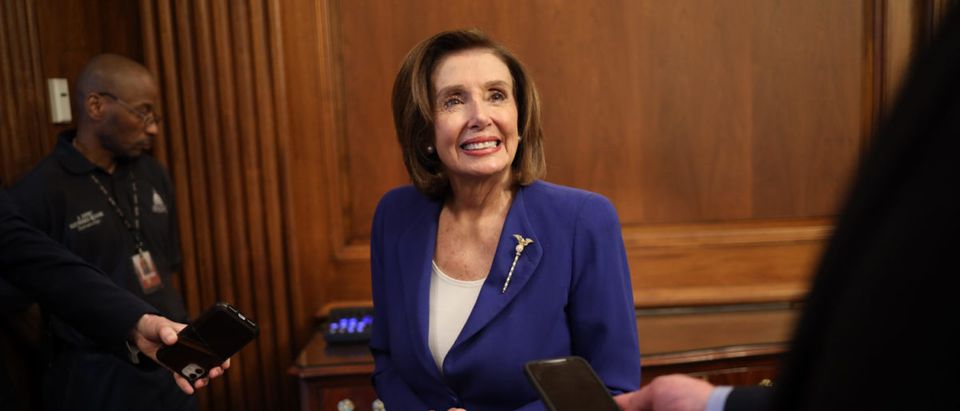Throughout the process of drafting relief legislation for Americans affected by the novel coronavirus and the impact of social distancing on the economy, the number one priority has been speed. Every day that relief is delayed, more Americans lose their jobs, more Americans struggle to pay bills and buy groceries and more medical aid to hospitals and hospital workers is not forthcoming.
Speed is the reason that the $1,200 checks the Senate bill would have given to each individual American contained only limited means-testing. And speed is the reason that Senate Majority Leader McConnell cancelled the Senate’s planned recess last week.
Just don’t tell House Speaker Nancy Pelosi that. With bipartisan legislation worked out in the Senate, Pelosi returned from vacation and announced that the House would be presenting its own bill, blowing up the Senate package in the process. That caused the Senate deal to fall apart, forcing Congress back to the drawing board.
Surely, you say, Pelosi must have had good reason to delay such crucial legislation. Well, the reason was to push a progressive wish list that had only the most tangential relevance to the crisis at hand.
The bill that Pelosi blew up relief legislation to push included such non sequiturs as the elimination of $11 billion in Postal Service debt, $370.5 billion in student loan debt forgiveness, and a multi-employer pension plan bailout. And of course, no crisis response legislation would be complete without $600 million to the National Endowment for the Arts and the National Endowment for the Humanities (almost double the annual Congressional funding those organizations receive!)
And it also sought to impose some highly controversial liberal policies on businesses using the cover of federal aid. Businesses receiving support would be forced to conform to a litany of progressive fever dreams, including a requirement that they (and all their affiliates, contractors, and subcontractors) provide employee health insurance, a prohibition on outsourcing, a mandate that they “remain neutral” in employee unionization efforts for five years, a requirement that they institute a $15 minimum wage, and a ban on federal lobbying, among other things. All things that progressives love, but they are almost entirely unrelated to the crisis at hand.
Airlines receiving aid specifically would have been required to conform to all these demands under the House bill, as well as several climate initiatives. These included funding for the Federal Aviation Administration to develop “sustainable fuels,” expanded carbon emissions restrictions and a requirement to reduce carbon emissions by 50 percent by 2050. After all, what better time to squabble over the environment than during a national health and economic crisis?
In all likelihood, close to zero of these provisions will make it into any future COVID-19 relief legislation. What will have a lasting impact is the delay that Pelosi felt was necessary to appease her Twitter followers. Thursday saw the release of eye-popping unemployment numbers, with over 3 million Americans having lost their jobs just since last week. An earlier crisis response couldn’t have helped all of them, but it could have helped many and Pelosi’s gambit is partially to blame for the delay.
The time to hold up legislation to make symbolic gestures to your ideological constituency’s pet issues is not in the middle of a crisis. Speaker Pelosi should focus on helping the American people who are in need of help — she and the rest of Congress can go back to bickering once the crisis is past.
Andrew Wilford is a policy analyst with the National Taxpayers Union Foundation, a nonprofit dedicated to tax policy research and education at all levels of government.












